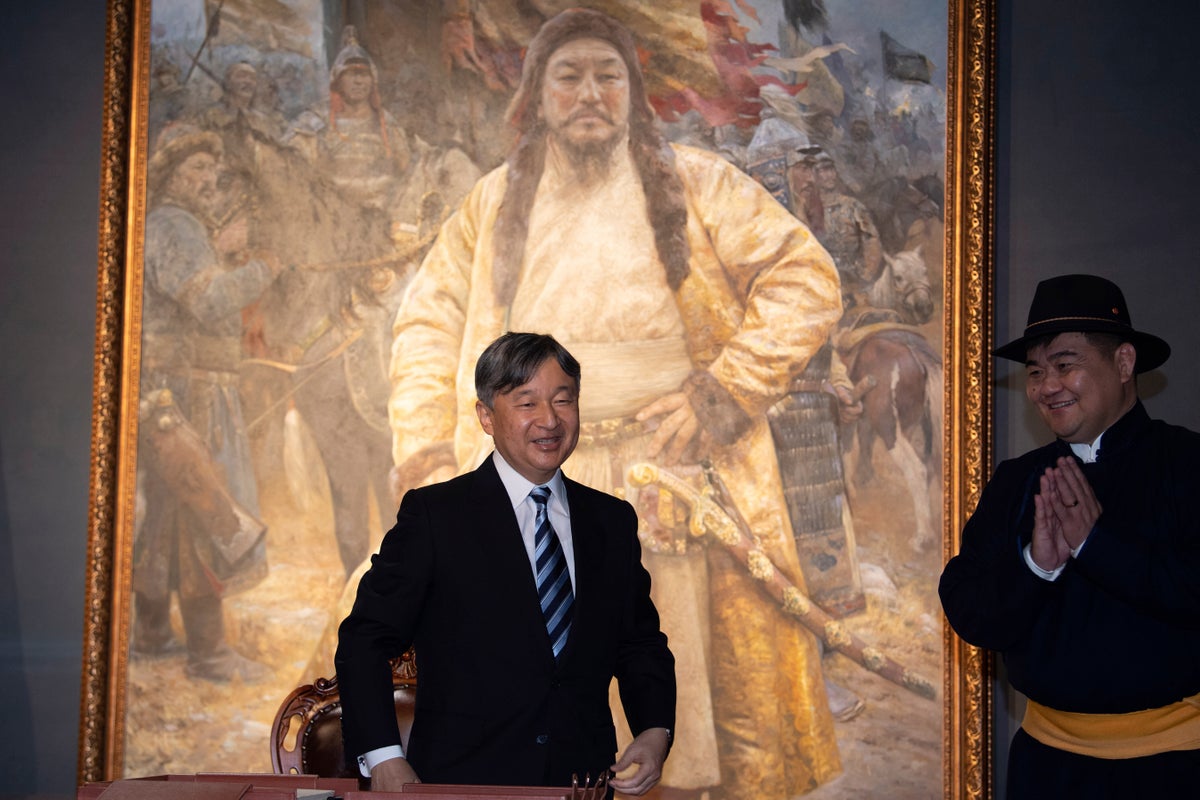From reproductive rights to climate change to Big Tech, The Independent is on the ground when the story is developing. Whether it’s investigating the financials of Elon Musk’s pro-Trump PAC or producing our latest documentary, ‘The A Word’, which shines a light on the American women fighting for reproductive rights, we know how important it is to parse out the facts from the messaging.
At such a critical moment in US history, we need reporters on the ground. Your donation allows us to keep sending journalists to speak to both sides of the story.
The Independent is trusted by Americans across the entire political spectrum. And unlike many other quality news outlets, we choose not to lock Americans out of our reporting and analysis with paywalls. We believe quality journalism should be available to everyone, paid for by those who can afford it.
Your support makes all the difference.
Read more
Japan’s Emperor Naruhito met with Mongolia’s president Tuesday during a visit to the landlocked Asian nation that marks a step toward closer relations between the democracies in a region dominated by Russia and China.
Naruhito met with President Ukhnaa Khurelsukh following a welcoming ceremony in the capital Ulaanbaatar on the second day of a weeklong visit. Japan has made a priority of boosting trade with the sprawling nation of 3.5 million, whose resources of coal, copper and other minerals are largely exported to China.
In the afternoon, he plans to lay flowers at a cenotaph in honor of thousands of Japanese prisoners of World War II who were held under harsh conditions in the country. Naruhito’s visit marks the 80th anniversary of the end of the war.
Some historians say one of the first battles of the war was a clash in the summer of 1939 between invading Japanese troops and Soviet forces on the Mongolian frontier in which the Japanese were badly defeated.
In recent years, Naruhito has toured some of the places where the bloodiest battles and bombings of World War II occurred, including Iwo Jima, Okinawa and Hiroshima.
The emperor has said it’s part of his effort at atonement and remembrance of the tragedy of war fought in the name of his grandfather, Emperor Hirohito. While the vast majority of Japanese prisoners of war were taken to Siberia, around 12,000 to 14,000 ended up in Mongolia, which by war’s end was fighting alongside the Russians against Japan. For decades after the war, Mongolia was virtually a Soviet armed camp trained at China, with most of its people pursuing their traditional herding lifestyle.
Since throwing off Communist rule in 1989, Mongolia has built a resilient democracy, seeking to balance economic and political pressures from Beijing and Moscow with strong support from the U.S. and its allies in Asia, including Japan and South Korea.
